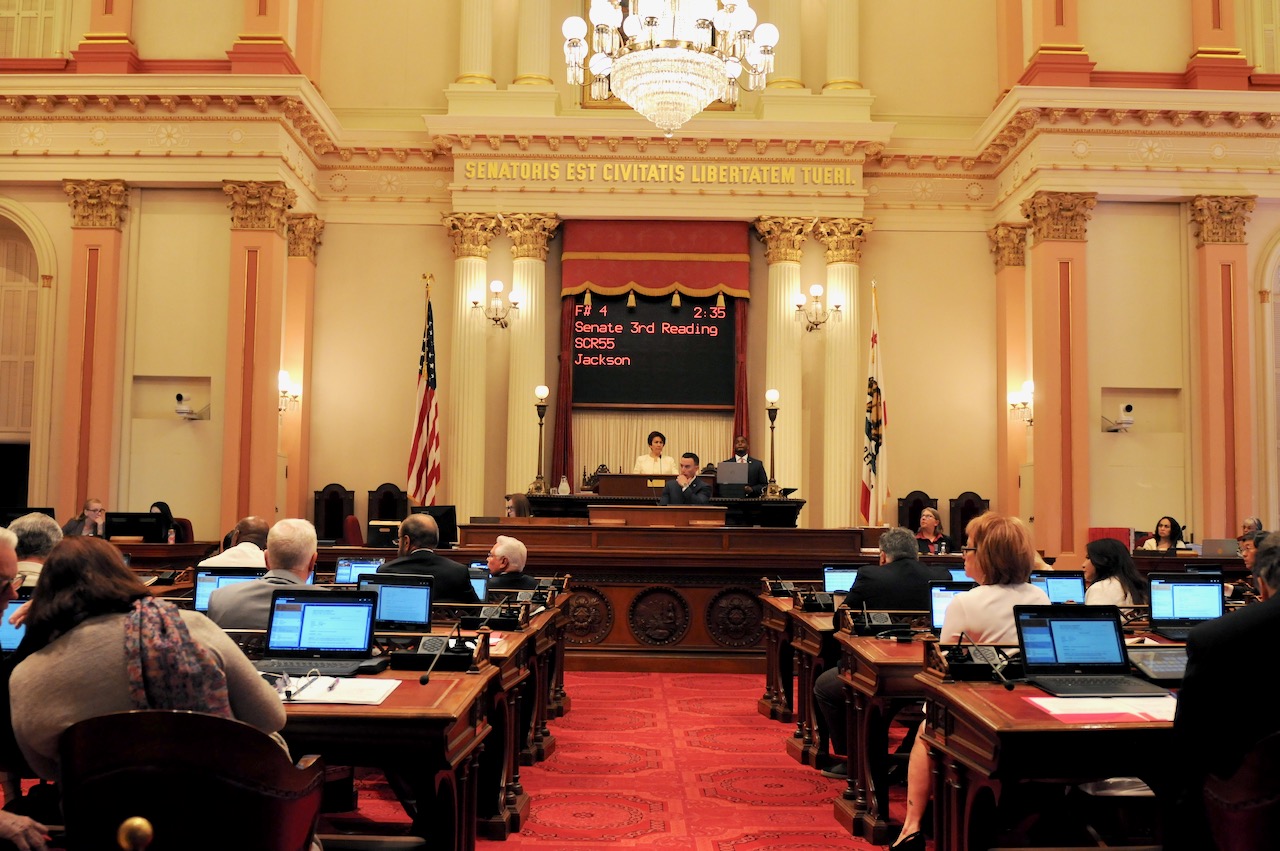
California State Capitol. (Photo: Kevin Sanders for California Globe)
Should Interpretive Guidance Be Included in California Legislation?
‘These generalized statements of intent really do not serve as an aid to the courts or to executive branch agencies’
By Chris Micheli, April 28, 2024 2:30 am
General statements of legislative intent may or may not be helpful. Why? First, they are of limited value to the courts. For example, a recent California appellate court decision stated: “Legislative findings and statements of purpose in a statute’s preamble can be illuminating if a statute is ambiguous. But a preamble is not binding in the interpretation of the statute. Moreover, the preamble may not overturn the statute’s language.”
In other words, there first must be ambiguity in the statutory language in order for a court to refer to intent statements. Assuming there is, the second problem is that these intent statements rarely shed light on how to properly interpret the ambiguous language. If these legislative statements are going to be utilized by the courts as “an aid in construing a statute,” then these statements should be directed at the actual statutory language.
This leads me to my proposal: Include interpretive guidance in California legislative documents so that the courts do not have to try and use generalized intent statements to try and ascertain what ambiguous statutory language actually means. Let’s start with an example of the problem and how my solution could work:
For example, a bill is proposed to create a tax credit for hiring disadvantaged workers normally might include an intent statement such as, “It is the intent of the Legislature to assist workers facing barriers to employment by offering a tax credit to businesses for hiring these types of individuals.” Intent statements might also include relevant statistics about limited hiring opportunities for disadvantaged workers, such as ex-felons, etc.
The problem that I have seen is that we already know what the intent is behind such a bill proposal. In other words, how helpful are those intent statements really to aiding statutory interpretation? I would suggest that they are not of particular value. A legal dispute, such as between a taxpayer and the taxing agency is not going to benefit from those generalized statements of intent. And a court trying to resolve the dispute between the taxpayer and the taxing agency will not likely benefit from those intent statements either.
Why? Because a legal dispute involving this hypothetical tax credit is going to be over issues such as: Is this taxpayer entitled to claim the credit? Did the individual hired qualify under one of the specified categories of worker? Understanding why specific statutory language was or was not chosen for this tax credit probably will not hinge on why the tax credit was created.
Rather, the issues giving rise to a legal dispute would probably be, for example, whether a particular business could claim the tax credit or whether a particular worker qualified the business to claim the tax credit. So, again, how do generalized statements of intent assist a court of law in interpreting possibly ambiguous statutory language? They probably do not.
In my opinion, these generalized statements of intent really do not serve as an aid to the courts or to executive branch agencies in interpreting the Legislature’s enacted statutory language. So, what do I suggest? I think California legislation, in bill analyses, or perhaps even in legislation itself, that interpretive guidance be included. What does this actually mean?
How would this look? Legislative committee analyses would include a sentence or two to explain the provisions of the bill that are adding new code sections or amending existing code sections. The purpose of this sentence or two would be a brief explanation of what is intended with these new or changed statutory provisions. For example, “the Legislature intends that these types of (specified) businesses qualify for the hiring tax credit, but not these (specified) businesses.” Or, “the Legislature considered including all felons as a qualifying category for this hiring credit, but decided that it is only for felons convicted under (specified) circumstances.”
Yes, I know, this would require lots more work for committee consultants. And, it would require active engagement and discussion among the committee’s legislative members. But that could be accomplished if there were a sizeable reduction in the bill introduction limits in the California Legislature, and if legislative committees took on the role (with a vastly reduced quantity of bills considered at their hearings) of actually reviewing and debating the proposed statutory language contained in bills.
- Designating ‘Spot’ Bills in the California Legislature - March 2, 2026
- Regulatory Powers of the Fish and Game Commission - March 2, 2026
- Committee Versus Floor Lobbying - March 1, 2026





3 thoughts on “Should Interpretive Guidance Be Included in California Legislation?”